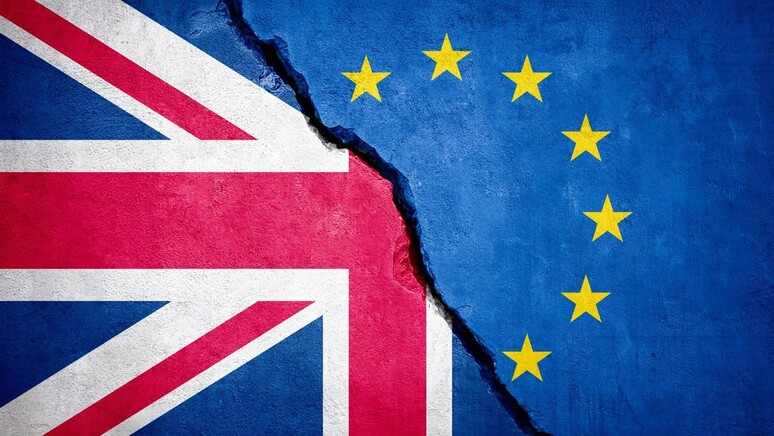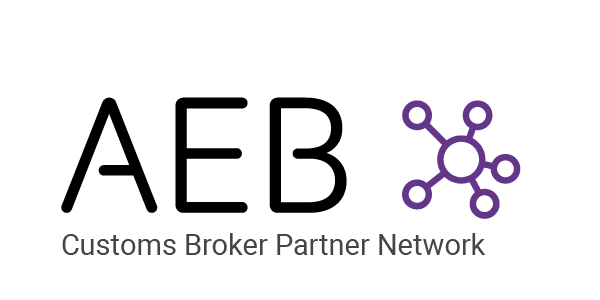
"We stand behind every one of our customs declarations"
Frank Donohoe, Operations Manager at Customs Wise, talks about how he and his team managed Brexit. And how their focus on customs for goods subject to special regulations was helpful.

Frank Donohoe, Operations Manager at Customs Wise, talks about how he and his team managed Brexit. And how their focus on customs for goods subject to special regulations was helpful.
Frank: A typical workday for us starts with a cup of coffee (laughing). We have a hybrid work model – meaning that out of 18 employees who work at our main office in Dublin, about 5 are typically in the building. It’s vital that our customers be able to reach us easily, so we put in early and late shifts to be available from 7:00 a.m. until 11:00 p.m., seven days a week.
Frank: We have a four-person team in Delhi that starts working at 3:00 a.m. GMT, which is 8:30 a.m. there. We start off the morning with a quick troubleshooting meeting to deal with any acute problems that our customers experienced during the night or in the early morning. And because we handle customs for complex goods and products, there’s actually always a lot to talk about there.
Frank: We work with a lot of perishable goods that need to be customs cleared within a narrow time frame. A refrigerated load with a tight timeline commands our full attention, of course. So we spend the morning troubleshooting. I normally take 40 to 50 phone calls between 9:00 a.m. and 1:00 p.m. A typical example would be incorrect information on an Export Health Certificate (EHC) for a load of poultry meat. What we’d do then is go back up the chain of contacts to try to correct the mistake.
Frank: One thing we might do in the afternoon is onboard new customers – asking about their partners in Ireland and their Harmonized System commodity codes, etc. Sometimes, new customers have just one commodity code, but some have 150. And if they have 150, we use our software to go down the UK Global Tariff catalog, and then the number goes down to maybe four. We also run a due diligence check, then we onboard them in our software.
"Some customers have 150 commodity codes. We go down the UK Global Tariff and it goes down to 4."
Frank: We’re part of the Tindal Wine Merchant Group, so our origins are in the food and beverage industry. And food is still our focus – along with automotive parts, pharma, and chemicals. All these products require multi-layered regulatory compliance. That means we’re often dealing not only with the customs authorities but also with agricultural authorities and Ireland’s Health and Safety Authority.
A full 95 percent of our declarations have at least two authorities involved, and it’s often four. And that makes things much more complicated, of course. If something in a declaration needs to be clarified, we have to run it past four different authorities, not just one. We have a very experienced team for getting food shipments through customs. We call them the “Customs Wise Special Forces,” because they’re the absolute experts for any type of food regulations. They check the documents, and in 95 percent of cases, we find something that could cause problems. And then they have to go back to whoever completed the documents, such as the veterinarian.

Frank Donohoe, Customs Wise Operations Manager
Customs Wise is a customs compliance and customs service provider based in Dublin, Ireland. The company is part of the Tindal Wine Merchant Group, an association of wine-importing companies, where it grew from a business unit with a vision for helping to actively steer imported wines through customs. True to this tradition, Customs Wise focuses on food and other complex goods whose customs clearance requires compliance with special regulations.
"Our food team is called the Customs Wise Special Forces."
Frank: ... and they were a big headache for us, because they created a massive gray area. You used to need an EHC for goods with more than 50 percent animal product. The law changed in April 2022. Now it depends on the composition, and private attestations are allowed in certain circumstances.
What this means is that anyone clearing goods containing animal products needs to quickly and, of course, correctly identify which rules the goods fall under. If the customs broker provides the wrong information, it’s very difficult to re-export the goods. And in many cases, the simplest thing is to destroy the goods, which seems to happen quite often, unfortunately. So customs brokers need to know exactly what they’re doing. You can’t bluff food.
"You can't bluff food."
Frank: We had basically been working nonstop since December 21, but January 1 itself was not as busy as we had expected. The really critical date was January 4. That was a Monday, and everyone was back in the office. We got our first jobs through the AEB Customs Broker Integration Portal. On January 1 and 2, we probably had 20 percent of the customs jobs that we had anticipated. On January 3, we had about 500 percent more declarations than expected. We had a surge of requests from potential new customers who couldn’t get their goods across the border. We had to turn them down to ensure the best service for our existing customers.
"On January 4, we had about 500 percent more declarations than expected."

In a series of interviews, we take a closer look at our broker partners around the world and the intricacies of their day-to-day work in customs.
Some are generalists, others specialize in certain goods, all of them are experts for their country or countries. They have all joined the AEB Customs Broker Network that provides hassle-free, digitalized access to broker services for companies looking for reliable customs expertise.
Frank: Irish Customs had apparently totally underestimated the volume, and the server response times were really slow. We waited up to three hours for an answer in some cases. There were also some screening mechanisms that had not been activated on the test server. We worked through the night to adjust our processes, and on January 9, we had things under control again. There was still a lot going on, of course, but the processes were working and we were up to speed.
Frank: We began planning for Brexit in June 2019. We thought about which resources we needed and quickly realized that well-trained employees were the key to a successful outcome. We began by expanding our team from 4 to 18 employees. And we trained them all ourselves. We invested in a four-week in-house training that included 20 sample declarations, questionnaires, and assignments. Because we thought it was important to give our new employees the right tools for their jobs. We didn’t want them to just enter numbers in boxes. We wanted them to also know why they were doing it.
"Our most important resource for mastering Brexit: well-trained people."
Frank: ... and it was worth it. We must have interviewed 500 people, shortlisted 100, put 60 through our Brexit training, and ultimately ended up hiring 18. The learning curve was steep, but now we have a well-trained team doing a great job. Our most important resource for mastering Brexit was well-trained people.
Frank: We had already shifted to fully electronic processes for much of our operations – with help from AEB. We already had the software, standard protocols, and tools. Our focus on the food industry and experience with complex customs issues and products were a big competitive advantage, of course. So on the technical side, there wasn’t much to do.
Frank: The changes resulting from Brexit continue to present a major challenge to many companies. Only 20 percent of the documents we received in the first 12 weeks after Brexit were ready to go. And we still get lots of documents that are incorrect – such as invoices with British VAT. Correct tax information is an absolute priority for us, because otherwise, there will be a rude awakening when the auditors show up. And the auditors are now out in full force.
The AEB software Customs Broker Integration digitizes the collaboration with your customs brokers. Choose one of the trusted partners from AEB's broker platform to work with or simply connect your own broker.
"Nothing takes priority over customs compliance."
Frank: All the more important that everything with the customs declaration is compliant. Nothing takes priority over customs compliance – not even speed of delivery. Some new customers come to us after they got audited and slapped with a penalty. If we processed a declaration, we stand 100 percent behind that declaration.
Frank: A major post-Brexit challenge for Ireland, Northern Ireland, and the UK is certainly CDS ...
Frank: Exactly. We’ve been working with CDS since September, and it’s different than CHIEF in some big ways – above all, a lot more input. And then there’s the very lax approach right now to UK inward processing relief with imports from the UK into Ireland. Many people simply aren’t doing it – until the next customs audit, that is. We’re happy to help, of course, and better sooner than later.